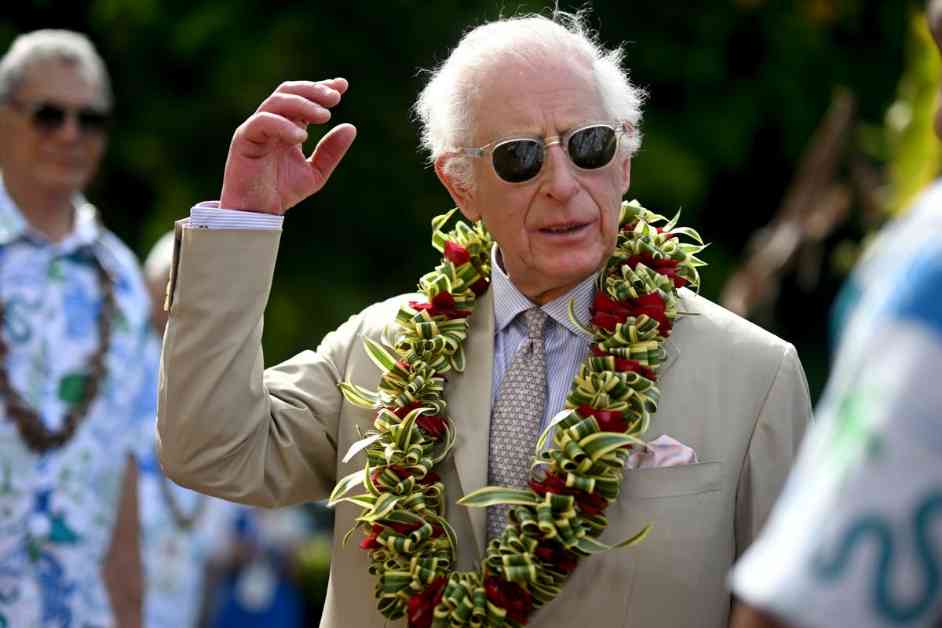King Charles III reflected on the painful past of the Commonwealth as he bid farewell to Samoa after indirectly acknowledging growing calls for slavery reparations in Samoa.
The King, along with Queen Camilla, concluded their four-day state visit to Samoa by visiting a village twinned with the UK after attending a major Commonwealth summit hosted by the Pacific nation. In his speech at the opening of the Commonwealth Heads of Government Meeting (Chogm), the monarch acknowledged the need to learn from history and address enduring inequalities.
While some leaders at the event urged for financial reparations, King Charles chose to focus on the importance of understanding history and finding the right language to guide future decisions. He expressed his hope to return to Samoa in the future and emphasized his dedication to the region.
During their tour of Australia and Samoa, the royal couple engaged in various activities, from poignant remembrance events to ancient welcome ceremonies. Crowds gathered to witness the King’s first visit to Australia as monarch, with moments of informal interactions and unique encounters along the way.
Despite facing controversy, such as accusations of genocide against the First Nations in Australia, the King and Queen immersed themselves in the local culture and traditions. In Samoa, King Charles showcased his appreciation for the local fashion and customs, receiving honorary titles and participating in traditional ceremonies.
As they bid farewell to Samoa, the royal couple expressed their gratitude for the warm welcome and hospitality they received during their visit. King Charles reaffirmed his commitment to the region and expressed his desire to return in the future.
Overall, the royal tour of Australia and Samoa provided a platform for cultural exchange and diplomatic engagement, highlighting the importance of historical awareness and mutual respect. King Charles III’s reflections on the Commonwealth’s past and his hopes for the future underscored the significance of acknowledging and addressing historical injustices in the quest for a more equitable and inclusive world.












